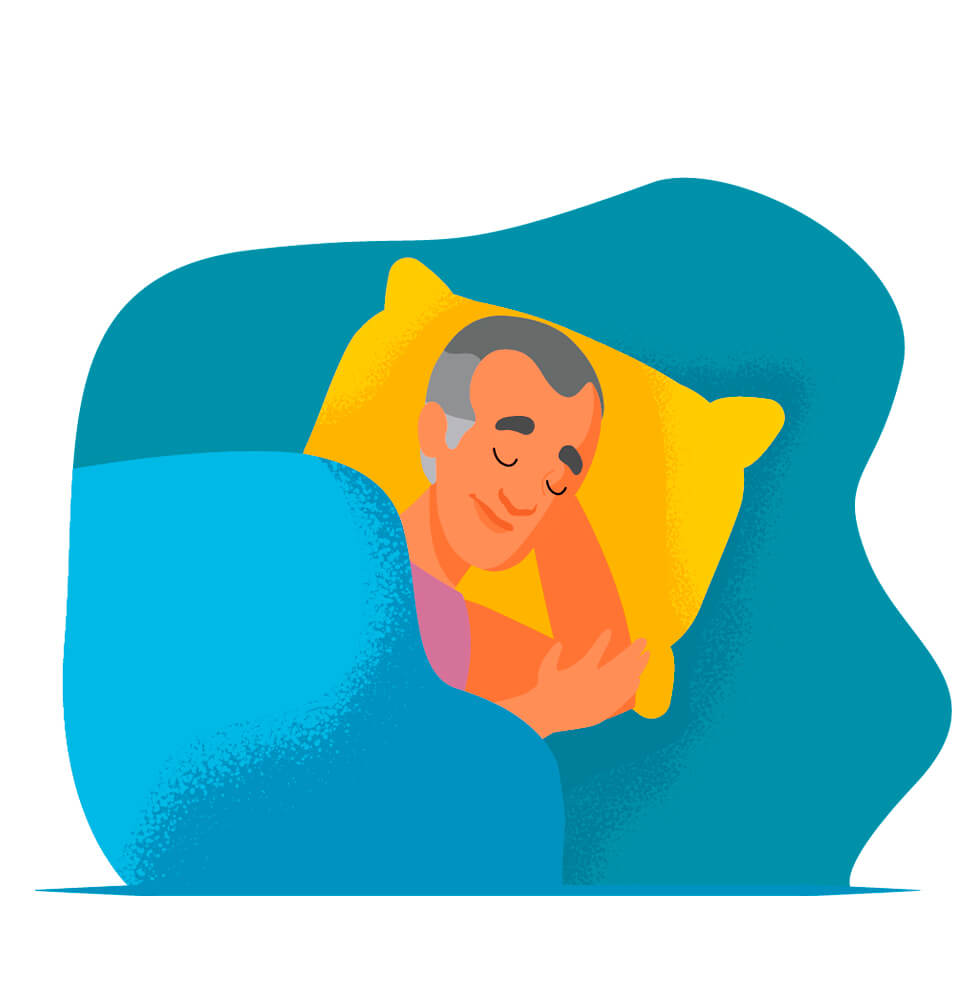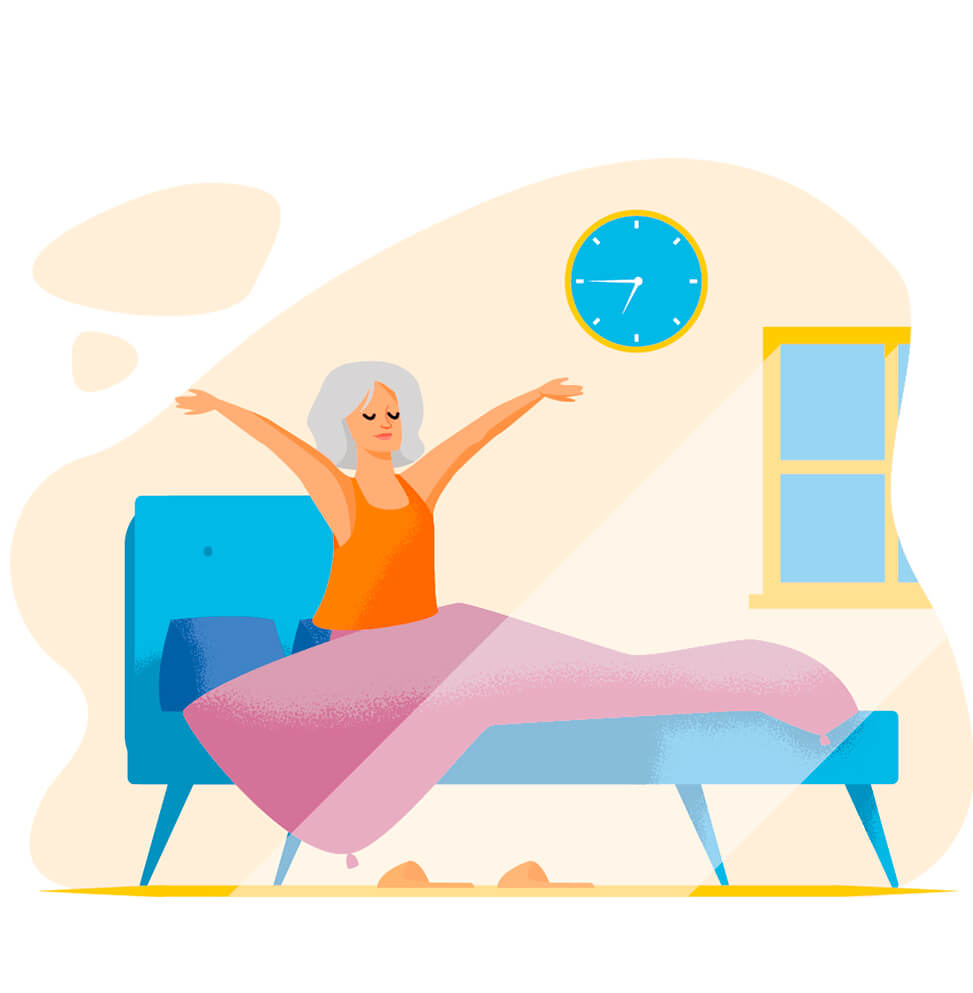
In the hours directly before bed
- Quiet time or a relaxation exercise before bed can help you relax.
- Avoid heavy meals, alcohol, cigarettes and heavy exercise in the hours before bed.
- Turn off TV, computers and smart phones.

At bedtime
- Routine is important. Try to go to bed and get up around the same time each day.
- Use your bed only for sleep and sex.
- Get up if you’re not getting to sleep within 20 minutes. Go back to bed when you feel drowsy.
- Worry and stress can stop you sleeping. Keep a notepad by your bed and write your worries down (this gives your mind permission to stop thinking about them).

During the day
- Expose yourself to sunlight or a bright light upon waking.
- Napping during the day disrupts your sleep. Limit naps to 20 minutes.
- Stop drinking caffeinated drinks (coffee, tea, energy drinks, colas) after 2pm.
- Exercising daily reduces stress and promotes sleep. Try walking, swimming or even gardening.
Keeping a diary can help you and your healthcare professional learn more about your sleep patterns and uncover ways to improve your sleep.
Download our FREE sleep diary here.



